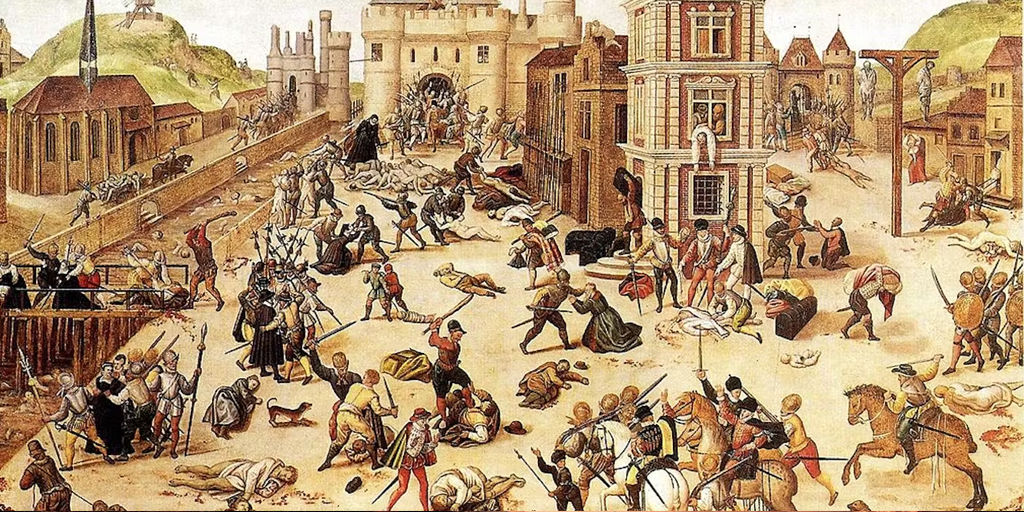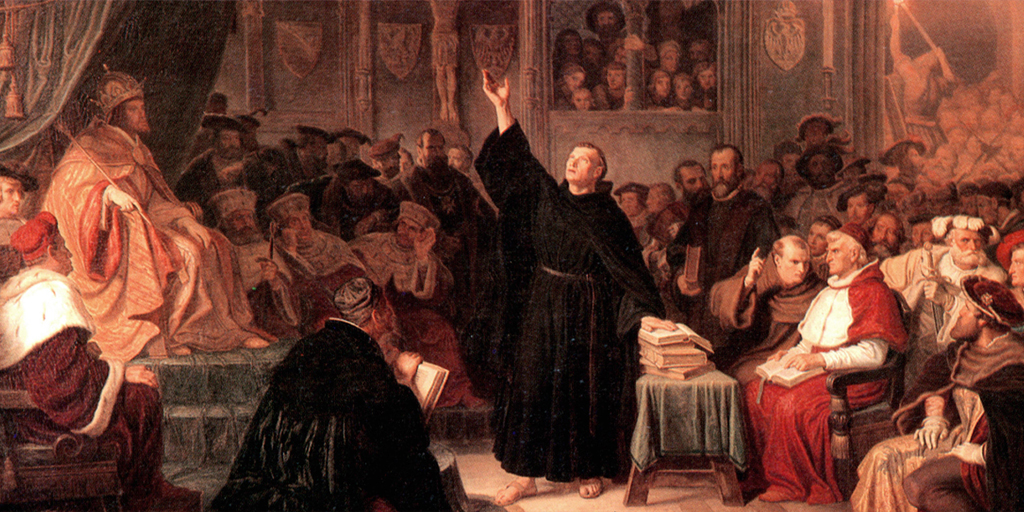The Protestant Reformation was a Christian history. It changed my faith forever. A theological debate in the early 16th century sparked a seismic movement. It reshaped Europe’s religion, politics, society, and economy. This ripple effect, driven by radical change, lasted long after the initial wave of reform. It spread into new areas of life and faith. It drove the growth of Christianity in ways once unimaginable. At its core, the Reformation responded to discontent with the Roman Catholic Church. Yet, it developed into a larger reform movement. It challenged the authorities, doctrines, and the very structure of society. This unleashed changes that would splinter Christianity. But it would also revitalize and globalize faith in new, unexpected ways.
Table of Contents
ToggleOrigins of the Reformation: A Storm Brewing
This act is now famous in history. In the Middle Ages, various movements sought to fix the corruption they saw in the Church. John Wycliffe of England and Jan Hus of Bohemia laid the groundwork. They questioned papal authority. They condemned indulgence sales. They called for a return to Christ as the central authority in Christian life. But it was a unique mix of social, political, and tech factors in the early 16th century. That allowed Luther’s call for reform to resonate across Europe. It allowed his writings to reach a much wider audience than before. Political instability and the rise of nation-states helped the Reformation succeed. They embraced Protestantism for its theology and political benefits. It gave them control over church lands and reduced taxes to Rome.
Martin Luther and the Birth of Protestantism
Luther viewed this practice as exploitative and lacking theological soundness. It reduced salvation to a financial transaction, not a matter of faith. He said that salvation came through faith alone (sola fide). That Scripture alone should guide Christian life and doctrine. Luther believed the Church was corrupt. It cared more for wealth and power than for its followers’ souls. Luther’s writings inspired a wave of reformers across Europe, each of whom took up the cause in their way. In Switzerland, Huldrych Zwingli led the Protestant movement. In France and Geneva, John Calvin did the same. In Scotland, it was John Knox. Each added his views to the Reformation.
The Splintering of Christianity: From Reformation to Denominations
The movement gained momentum and developed its own identity. Different reformers had different interpretations of Scripture. This led to distinct theological traditions. Lutheranism, based on Luther’s teachings, took hold in Germany and Scandinavia. Calvinism stressed predestination and God’s power. It became influential in Switzerland, France, the Netherlands, and later, Scotland. The reforming tradition would influence Protestant thought and practice. It maintained many Catholic practices but embraced some Protestant ideas. The English Reformation led to various movements, including the Puritans. They sought to purify the Church of England of all Catholic elements. The Reformation also spawned radical movements, like the Anabaptists. Both Catholics and Protestants often persecuted the Anabaptists for their beliefs. Their focus was on religious freedom.
Religious Wars and Political Upheaval

The Reformation was both a religious movement and a significant political movement. Protestant Protestantism spread and threatened Europe’s power structures. The most notable were the Wars of Religion. It established the principle of cuius regio, religion. This allowed rulers to set the religion of their territories. The Reformation fueled conflicts elsewhere. These include the French Wars of Religion (1562–1598). These conflicts have reshaped Europe’s political map.
The Reformation’s Legacy: Freedom, Education, and Individualism
The Reformation changed Western society. Its most enduring legacy is the emphasis on individual conscience. It upheld the right to interpret Scripture for oneself. It influenced everything from the Enlightenment to democratic ideals. The Reformation also had a lasting impact on education. Protesters, especially in the Reformed tradition, stressed literacy and studying Scripture. So, many Protestant areas set up schools and universities. They aimed to educate both clergy and laypeople. This focus on education has driven scientific and intellectual progress for centuries. Finally, it played a key role in the development of religious freedom. They often caused religious persecution and conflict.
How Did the Protestant Reformation Start
The Protestant Reorganization was a sixteenth-century development. It responded to clear maltreatment in the Catholic Church. The essential impact came from Martin Luther, a German priest and scholar. He tested the Pope’s position and the Catholic Church’s practices. Strict worries were the essential inspiration driving the Protestant Reformation. It had political and social impacts as well. It tested the Catholic Church’s power. It prompted new Protestant groups. Reorganization also changed European history. It helped shape the modern world.Here is a concise outline of how the transformation began:
- Guilty pleasure:
The offer of extravagances started Luther’s discontent. Guilty pleasures were testaments sold by the Catholic Church. They vowed to lessen the time in limbo in the afterlife. Luther contended that this practice was a type of simony. It was not possible to remove the adverb. He said it sabotaged the genuine importance of salvation.
- 95 Proposals:
In 1517, Luther nailed a document to a church in Wittenberg, Germany. It was the 95 Theses. These proposals recorded 95 reactions to the Catholic Church. They incorporated the offer of extravagances, the power of the Pope, and the role of the Church. Luther needed to discuss the Catholic Church. Yet, his activities ignited a strict development across Europe.
- Protestant Development:
The Catholic Church denounced and suspended Luther for his reactions. Luther, yet, wouldn’t recant his perspectives and kept on spreading his lessons. This prompted the Protestant development. It was a free gathering of Christian categories. They dismissed the Pope’s and the Catholic Church’s positions.
- The spread of Protestant reorganization:
spread across Europe at incredible speed, particularly in Germany, Switzerland, and Scandinavia. Many rulers and aristocrats upheld it, considering it to be a chance to gain influence and plenty. The Reconstruction had a significant impact on European culture and society. It brought forth new artistry, writing, and music. Strict worries were the essential inspiration driving the Protestant Reformation. It had political and social impacts as well. It tested the Catholic Church’s power. It prompted new Protestant groups. Reorganization also changed European history. It helped shape the modern world.
FAQs:
What is the meaning of the Reformation?
A reformation is the act of improving a religion, government, or society. When capitalized, the Reformation refers to the Protestant Reformation in Europe. It was a religious change started in 1517 by Protestants. They wanted to reform the Catholic Church.
What is the difference between Catholicism and Protestantism?
Catholicism is often seen as traditional. It has a strict hierarchy and claims authority through the clergy. Most see Protestant groups as abandoning tradition. They now focus more on individual faith.
Why don’t Protestants pray to Mary?
Protestant Christians do honor Mary. People see her as a righteous woman. She helped fulfill God’s plan to save humanity. The difference is that Protestants don’t believe she was born without original sin. They don’t pray to her, as only God should receive prayers.
Why do Protestants not believe in saints?
The key difference is about the saints in heaven. They intercede for us. Protesters don’t believe that. They argue we need no intercession. Christ has done everything for our salvation. He is our only mediator.
Which came first, Christianity or Catholicism?
Roman Catholicism claims, from its history, to be the first Christian faith. A key part of defining any branch of Christendom is its relation to Roman Catholicism.



